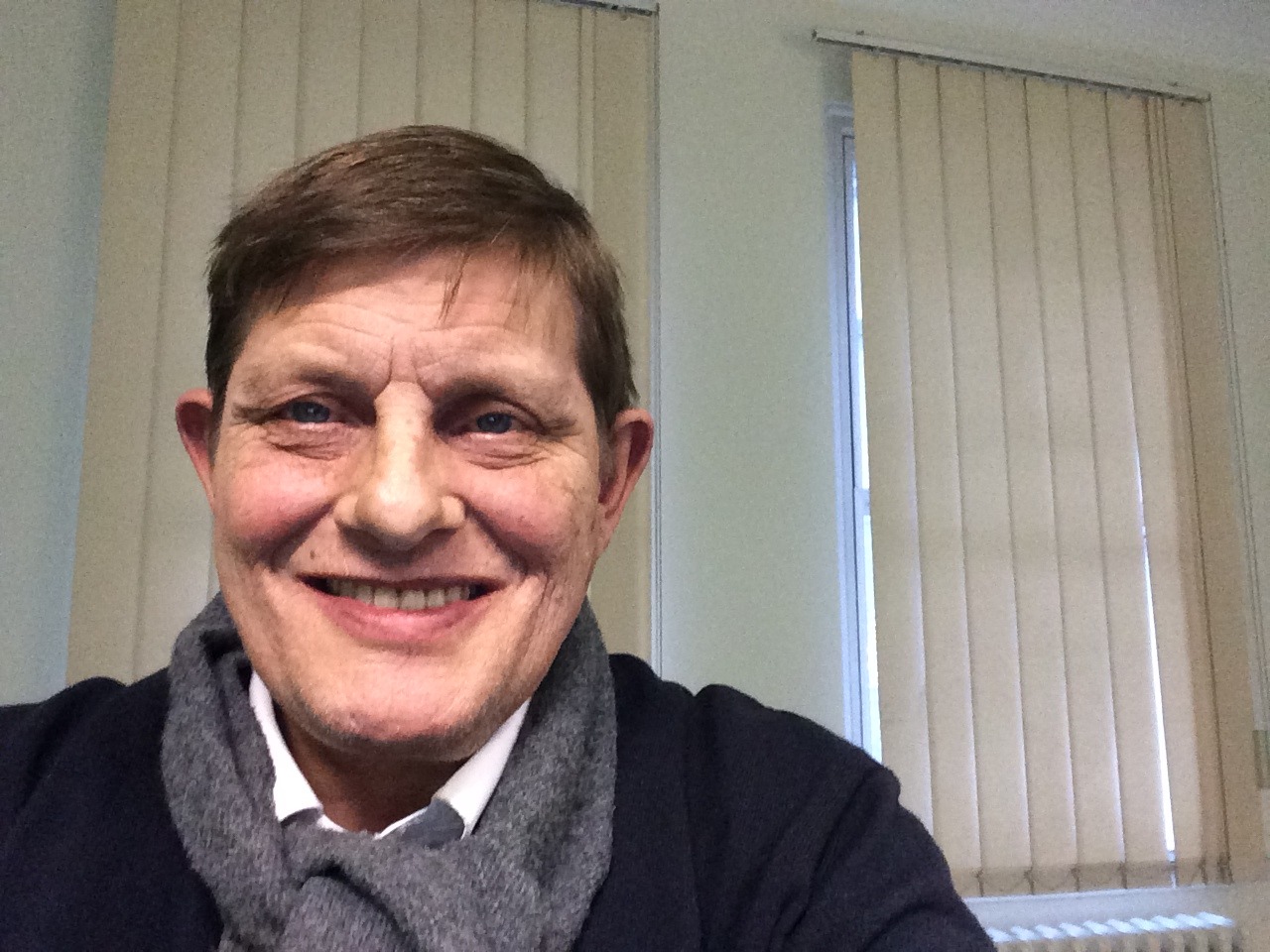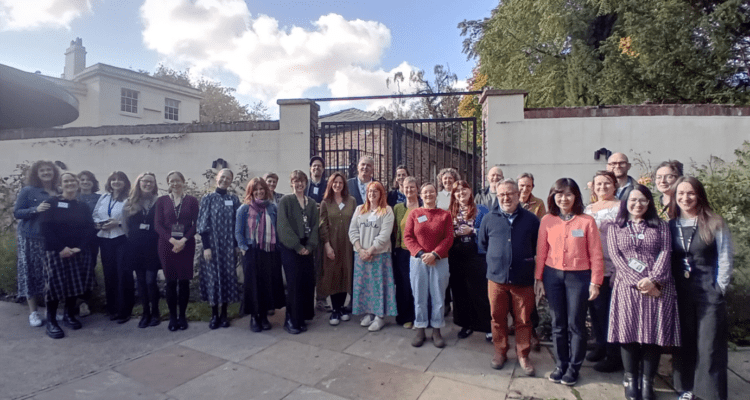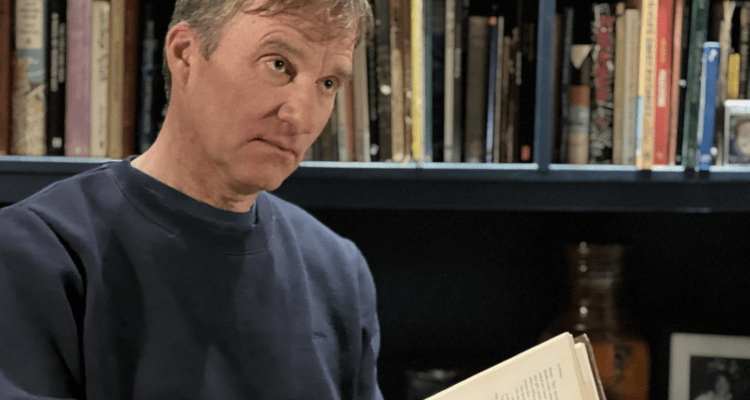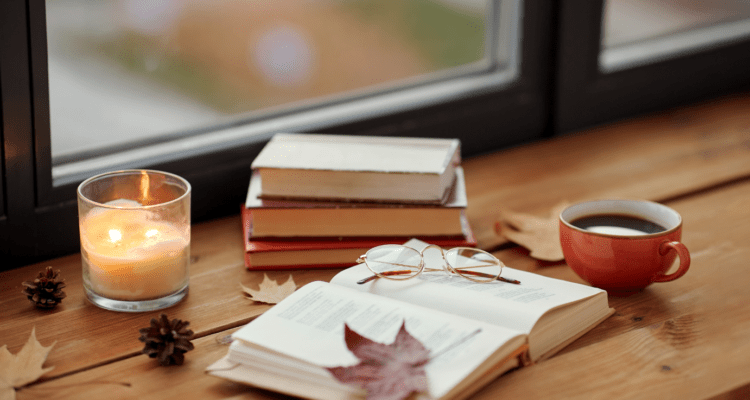Waldo’s Reader Story – “There’s a shared connection”
Waldo is a Peer Recovery Trainer in Camden. He talks about how Shared Reading helped him when he was struggling with his mental health.

It all started when I was a teenager. I came from an affluent family, had a good career in films for 25 years but I learned how to hide my problems. I started taking drugs when I was eighteen but it wasn’t until my early forties that everything caught up with me and I had a major breakdown and lost everything. I became bankrupt, lost my home, my partner, family, dignity and status in society. But most of all I lost myself. I ended up living on the street with only the clothes I stood up in. I moved from one dealer to another, doing odd jobs for them for drugs. My only goal was to survive.
I felt worthless. All the stigma associated with my mental health and substance misuse was heightened because I was homeless and had no money. I was made to feel utterly useless by services who saw me only as another worthless mad junkie on the streets. My expectations of myself were zero and the expectations of everyone around me were zero.
Eventually, after going in and out of hospital, I was given a place in a hostel. This was the first stable roof I had for two years. During this time at the hostel, I met my current partner - she was the first person in years who didn’t view me as just a ‘mad junkie on the streets’. We had a baby together and eventually moved into our own place. This stability allowed me to get on top of my drug taking but not my mental health. I was still struggling daily and isolating myself indoors.
The constant struggle to survive sapped all hope. There were times when the constant worry about finding the rent, the possibility of losing our flat and whether or not there would be enough for us to eat, was almost as bad for my mental health as being on the street. It was having a baby to look after that gave me something to live for.
Expectations around what I could do were very low. I had left school with no qualifications and had only worked in the ‘arts’ so felt I had little to offer. I went to a work placement in Community Day Services supporting a gardening group in the afternoons. I was given a set of keys to the building as soon as I arrived. This was the first time in a very long time that I felt trusted—I felt I was being valued and treated with dignity and respect. What is more, other staff listened to me when I spoke up. I was really made to feel a part of the team. It was not long before I moved on to volunteering for three days a week at the Day Centre, essentially working as a Peer Support Worker.I had been on the receiving end of help for so long that I had forgotten just how powerful being in a position to help others could be, even if this was just making someone a cup of tea.
Today I am a Peer Recovery Trainer and work at the Recovery College in Camden. I still take medication, and find some things a real struggle, but now I am someone who both uses services and helps to deliver services. And Shared Reading is something that’s become very important to me. I first found out about it about ten years ago when we started to run groups at the Recovery College and used it as part of people’s recovery. I have always been drawn to stories and I find you can read a poem or anything and it sparks a conversation.
If you have poor mental health it can be incredibly hard to pick up a book and read but through Shared Reading I find that people want to start reading again. It makes you think, ‘I’m not different, I’m not alone’ and there’s a shared connection. When I was reading ‘Of Mice and Men’ with one group, it struck me that it’s not so much about the book but about the conversations that take place because of what those lines mean to people.
It is fascinating to see the connections that take place through a Shared Reading session. I always say to people, ‘have a go, you don’t have to stay, you don’t have to read but you might find you like it’. I see it as a really useful tool in our wellbeing toolkit. For me, Shared Reading also helps me deal with my poor mental health and improves my wellbeing. If I’m having racing thoughts, I will lie down and read – it quiets my mind and transports me somewhere else. The power of Shared Reading is that it transcends the story.
As a charity we rely on the generous support of individuals and organisations to help us change lives through Shared Reading. A donation allows us to train volunteers, provide resources for groups and help reach more people like Waldo. We want to make sure everyone can attend a Shared Reading group, no matter their background, income or situation, and we'll be so grateful for your help.
Share
Related Articles

Celebrating the first ever International Shared Reading Conference
‘It has been a wonderful day - great meeting you all! Loved the Shared reading and getting new knowledge. Inspiring…

Meet The Reader: Staff Spotlight with Michael Prior
Michael Prior is our Partnerships Lead at The Reader. After increased demand in libraries and care homes for Shared Reading,…

November’s Stories and Poems
This month, we are turning our focus to a major part of The Reader’s in Criminal Justice settings. For 15…


